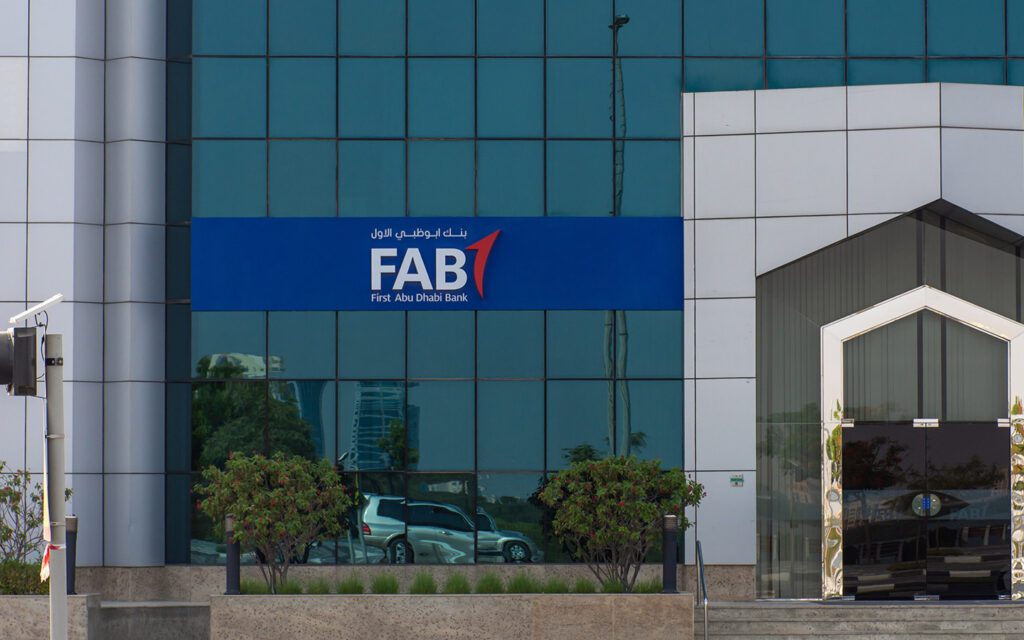The largest lender in the United Arab Emirates, First Abu Dhabi Bank (FAB), announced on Thursday that it had originally contemplated making a bid for London-listed Standard Chartered but had since changed its mind.
Bloomberg had earlier reported that FAB had been exploring an offer for Standard Chartered as part of a plan aimed at building an emerging markets bank, driving StanChart shares up as much as 20%. The shares pared gains and closed up 7% following FAB’s statement that it was no longer pursuing a potential deal.
The Abu Dhabi lender said it had been in “the very early stages of evaluating a possible offer” for the emerging markets-focused bank. Standard Chartered declined to comment on Thursday.
“Given StanChart has traded at relatively undemanding multiples for some time, as well as the fact that it has the benefit of a material surplus capital position, it is not surprising that it is seen as a takeover target,” said John Cronin, analyst at Goodbody.
Practicalities such as regulatory complexities and possible opposition from U.S. authorities to an important dollar clearing bank being taken over, mean any deal would be very hard to pull off in reality, Cronin said. Furthermore, the mooted combination of FAB and StanChart would have been subjected to more onerous capital requirements that would burden the resulting lender, a banking source said.
Under United Kingdom and Hong Kong takeover rules, FAB cannot bid for StanChart within the next six months without the consent of the British bank’s board, or in the absence of a rival takeover.
“Timing is everything and this was, taking a medium term view, a good time to look at the bank,” said Trevor Green, head of UK equities at Aviva Investors, which is a top 20 equity investor in StanChart according to Refinitiv data. “Still, shareholders will be not be willing to let the business go without a suitable bid premium.”
A debt investor in StanChart, who declined to be named, said the development showed there is broad interest in buying strategic assets at low valuations, but such deals were not easy to execute.
StanChart, which operates in 59 markets worldwide and has around 85,000 staff, has struggled in recent years to increase its revenue after Chief Executive Bill Winters spent the early part of his tenure repairing its balance sheet and slashing thousands of jobs. The bank in October said rising interest rates should boost its income, allowing it to increase its revenue targets despite the weakening global economy.
StanChart has been the subject of periodic takeover rumours in media reports over the last decade, with Barclays and JPMorgan among potential suitors named in such stories, although no deal has ever come to pass. Standard Chartered “is a bank that, while domiciled in the UK, is primarily focused on Asian, African and Middle Eastern markets,” said Stuart Cole, head macro economist at Equiti Capital.
“Given the pessimistic outlooks for the UK, US and EU at the moment, a take-over would give the buyer instant access to these largely developing and emerging markets and could therefore be seen as a good move strategically,” Cole said. The Gulf region is witnessing an economic boom fuelled by higher oil prices in the wake of Russia’s war on Ukraine, with sovereign wealth funds and banks on the hunt for deals amid a weakened global outlook.
Saudi National Bank in October announced it was investing up to $1.5 billion in Credit Suisse, representing a stake of up to 9.9%. In 2016, the National Bank of Abu Dhabi and First Gulf Bank merged to form FAB. The last few years have been spent by FAB renovating its branches under the new name and reaping the benefits of that merger. The lender declared total assets of 1.15 trillion AED ($313.1 billion) as of the end of September 2022, with the Abu Dhabi government providing about half of its deposits.


